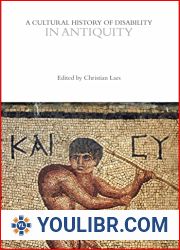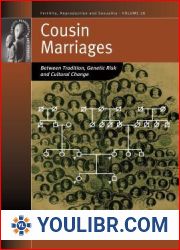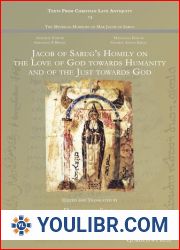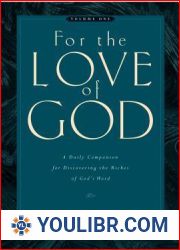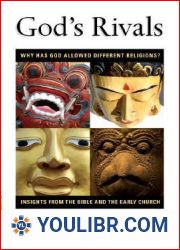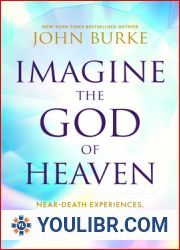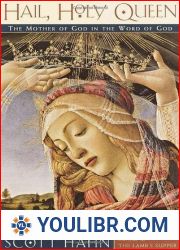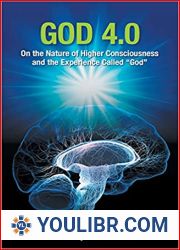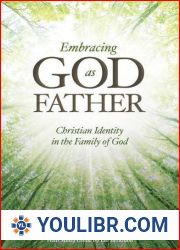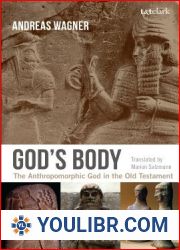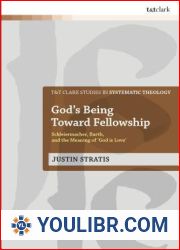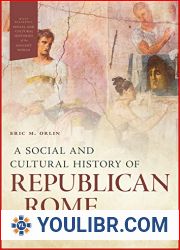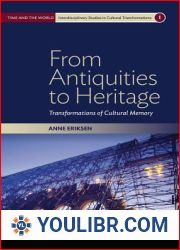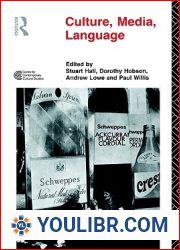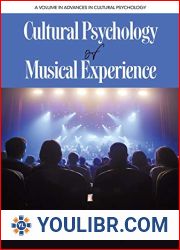
BOOKS - God in Translation: Deities in Cross-Cultural Discourse in the Biblical World

God in Translation: Deities in Cross-Cultural Discourse in the Biblical World
Author: Mark S. Smith
Year: December 31, 2008
Format: PDF
File size: PDF 1.6 MB
Language: English

Year: December 31, 2008
Format: PDF
File size: PDF 1.6 MB
Language: English

God in Translation: Deities in Cross-Cultural Discourse in the Biblical World The book "God in Translation" by Mark S. Smith offers a fresh perspective on the relationship between the Hebrew Bible and other deities, challenging the traditional view that the Bible unequivocally condemns foreign deities. By examining the historical context and cultural influences of the time, Smith demonstrates that the biblical attitude towards other deities is more complex and nuanced than previously thought. This study sheds light on the evolution of Israel's monotheistic beliefs and their connection to the rise of Mesopotamian empires, highlighting the importance of understanding the historical development of these beliefs. Smith's research undermines the assumption that polytheism is inherently tolerant, while monotheism is prone to intolerance and violence. Instead, he argues that the attitudes towards other deities in ancient Israel were varied and depended on the specific cultural context. He advocates for an ecumenical approach that values local traditions and rejects a Western notion of universal religion. The book explores the historical context of the Hebrew Bible, drawing on both ancient sources and modern theoretical approaches. Smith masterfully uncovers the complexity of attitudes towards foreign deities, revealing a rich tapestry of beliefs and practices that challenge our preconceptions about the nature of God and religious diversity.
God in Translation: Deities in Cross-Cultural Discourse in the Biblical World Книга «Бог в переводе» Марка С. Смита предлагает свежий взгляд на отношения между еврейской Библией и другими божествами, бросая вызов традиционному мнению, что Библия однозначно осуждает чужеземных божеств. Исследуя исторический контекст и культурные влияния того времени, Смит демонстрирует, что библейское отношение к другим божествам более сложное и нюансированное, чем считалось ранее. Это исследование проливает свет на эволюцию монотеистических верований Израиля и их связь с возвышением месопотамских империй, подчеркивая важность понимания исторического развития этих верований. Исследования Смита подрывают предположение о том, что политеизм по своей природе толерантен, в то время как монотеизм склонен к нетерпимости и насилию. Вместо этого он утверждает, что отношение к другим божествам в древнем Израиле было различным и зависело от конкретного культурного контекста. Он выступает за экуменический подход, который ценит местные традиции и отвергает западное представление об универсальной религии. Книга исследует исторический контекст еврейской Библии, опираясь как на древние источники, так и на современные теоретические подходы. Смит мастерски раскрывает сложность отношения к чужеземным божествам, раскрывая богатый гобелен верований и практик, бросающих вызов нашим предубеждениям о природе Бога и религиозном разнообразии.
Dieu en traduction : Déités en Cross-Cultural Discourse in the Biblical World livre « Dieu en traduction » de Mark S. Smith offre un regard nouveau sur les relations entre la Bible juive et les autres divinités, défiant l'opinion traditionnelle que la Bible condamne sans équivoque les déités étrangères. En examinant le contexte historique et les influences culturelles de l'époque, Smith démontre que l'attitude biblique envers les autres divinités est plus complexe et nuancée qu'on ne le pensait auparavant. Cette étude met en lumière l'évolution des croyances monothéistes d'Israël et leur rapport avec l'ascension des empires mésopotamiens, soulignant l'importance de comprendre le développement historique de ces croyances. s recherches de Smith sapent l'hypothèse selon laquelle le polythéisme est tolérant par nature, tandis que le monothéisme est enclin à l'intolérance et à la violence. Au lieu de cela, il affirme que le traitement des autres divinités dans l'ancien Israël était différent et dépendait d'un contexte culturel particulier. Il préconise une approche œcuménique qui valorise les traditions locales et rejette la conception occidentale de la religion universelle. livre explore le contexte historique de la Bible juive, en s'appuyant à la fois sur des sources anciennes et sur des approches théoriques modernes. Smith révèle habilement la complexité de l'attitude envers les divinités étrangères, révélant une riche tapisserie de croyances et de pratiques qui contestent nos préjugés sur la nature de Dieu et la diversité religieuse.
God in Translation: Deities in Cross-Cultural Discourse in the Biblical World libro «Dios en traducción» de Mark S. Smith ofrece una visión fresca de la relación entre la Biblia hebrea y otras deidades, desafiando la creencia tradicional de que la Biblia Estoy condenando inequívocamente a las deidades extranjeras. Al explorar el contexto histórico y las influencias culturales de la época, Smith demuestra que la actitud bíblica hacia otras deidades es más compleja y matizada de lo que se creía anteriormente. Este estudio arroja luz sobre la evolución de las creencias monoteístas de Israel y su relación con la elevación de los imperios mesopotámicos, destacando la importancia de comprender el desarrollo histórico de estas creencias. estudios de Smith socavan la sugerencia de que el politeísmo es por naturaleza tolerante, mientras que el monoteísmo tiende a la intolerancia y la violencia. En cambio, afirma que la actitud hacia otras deidades en el antiguo Israel era diferente y dependía de un contexto cultural específico. Aboga por un enfoque ecuménico que valore las tradiciones locales y rechace la concepción occidental de la religión universal. libro explora el contexto histórico de la Biblia hebrea, basándose tanto en fuentes antiguas como en enfoques teóricos modernos. Smith revela magistralmente la complejidad de la actitud hacia las deidades extranjeras, revelando un rico tapiz de creencias y prácticas que desafían nuestros prejuicios sobre la naturaleza de Dios y la diversidad religiosa.
God in Translation: Deities in Cross-Cultural Discourse in the Biblical World Das Buch God in Translation von Mark S. Smith bietet einen frischen Einblick in die Beziehung zwischen der hebräischen Bibel und anderen Gottheiten und stellt die traditionelle Ansicht in Frage, dass die Bibel eindeutig fremde Gottheiten verurteilt. Durch die Untersuchung des historischen Kontextes und der kulturellen Einflüsse dieser Zeit zeigt Smith, dass die biblische Haltung gegenüber anderen Gottheiten komplexer und nuancierter ist als bisher angenommen. Diese Studie beleuchtet die Entwicklung der monotheistischen Überzeugungen Israels und deren Zusammenhang mit dem Aufstieg mesopotamischer Imperien und unterstreicht die Bedeutung des Verständnisses der historischen Entwicklung dieser Überzeugungen. Smiths Forschung untergräbt die Annahme, dass Polytheismus von Natur aus tolerant ist, während Monotheismus zu Intoleranz und Gewalt neigt. Stattdessen argumentiert er, dass die Einstellung zu anderen Gottheiten im alten Israel unterschiedlich war und von einem bestimmten kulturellen Kontext abhing. Er steht für einen ökumenischen Ansatz, der lokale Traditionen schätzt und die westliche Vorstellung einer universellen Religion ablehnt. Das Buch untersucht den historischen Kontext der hebräischen Bibel und stützt sich sowohl auf alte Quellen als auch auf moderne theoretische Ansätze. Smith zeigt meisterhaft die Komplexität der Beziehung zu fremden Gottheiten, indem er einen reichen Teppich von Überzeugungen und Praktiken enthüllt, die unsere Vorurteile über Gottes Natur und religiöse Vielfalt herausfordern.
''
Çeviride Tanrı: İncil Dünyasında Kültürlerarası Söylem Deities Mark S. Smith'in "Çeviride Tanrı" kitabı, İbranice İncil ile diğer tanrılar arasındaki ilişkiye taze bir bakış açısı getirerek, İncil'in yabancı tanrıları açıkça kınadığı geleneksel görüşüne meydan okuyor. Smith, zamanın tarihsel bağlamını ve kültürel etkilerini inceleyerek, İncil'in diğer tanrılara yönelik tutumlarının daha önce düşünülenden daha karmaşık ve nüanslı olduğunu göstermektedir. Bu çalışma, İsrail'in tek tanrılı inançlarının evrimine ve bunların Mezopotamya imparatorluklarının yükselişiyle olan ilişkilerine ışık tutuyor ve bu inançların tarihsel gelişimini anlamanın önemini vurguluyor. Smith'in araştırması, çoktanrıcılığın doğası gereği hoşgörülü olduğu varsayımını baltalarken, tektanrıcılık hoşgörüsüzlük ve şiddete eğilimlidir. Bunun yerine, eski İsrail'deki diğer tanrılara yönelik tutumların değiştiğini ve belirli kültürel bağlama bağlı olduğunu savunuyor. Yerel geleneklere değer veren ve Batı'nın evrensel din kavramını reddeden ekümenik bir yaklaşımı savunuyor. Kitap, hem eski kaynaklardan hem de çağdaş teorik yaklaşımlardan yararlanarak İbranice İncil'in tarihsel bağlamını araştırıyor. Smith, yabancı tanrılara yönelik tutumların karmaşıklığını ustalıkla ortaya koyuyor ve Tanrı'nın doğası ve dini çeşitlilik hakkındaki önyargılarımıza meydan okuyan zengin bir inanç ve uygulama goblenini ortaya koyuyor.
الله في الترجمة: الآلهة في الخطاب عبر الثقافات في العالم التوراتي يقدم كتاب «الله في الترجمة» لمارك س. سميث منظورًا جديدًا للعلاقة بين الكتاب المقدس العبري والآلهة الأخرى، متحديًا الرأي التقليدي القائل بأن الكتاب المقدس يدين بشكل قاطع الآلهة الأجنبية. من خلال فحص السياق التاريخي والتأثيرات الثقافية في ذلك الوقت، يوضح سميث أن المواقف التوراتية تجاه الآلهة الأخرى أكثر تعقيدًا ودقة مما كان يعتقد سابقًا. تسلط هذه الدراسة الضوء على تطور معتقدات إسرائيل التوحيدية وعلاقتها بصعود إمبراطوريات بلاد ما بين النهرين، مما يسلط الضوء على أهمية فهم التطور التاريخي لهذه المعتقدات. يقوض بحث سميث الافتراض القائل بأن الشرك متسامح بطبيعته، في حين أن التوحيد عرضة للتعصب والعنف. بدلاً من ذلك، يجادل بأن المواقف تجاه الآلهة الأخرى في إسرائيل القديمة تباينت واعتمدت على السياق الثقافي المحدد. وهو يدعو إلى نهج مسكوني يقدر التقاليد المحلية ويرفض الفكرة الغربية للدين العالمي. يستكشف الكتاب السياق التاريخي للكتاب المقدس العبري، بالاعتماد على المصادر القديمة والمناهج النظرية المعاصرة. يكشف سميث ببراعة عن تعقيد المواقف تجاه الآلهة الأجنبية، ويكشف عن نسيج غني من المعتقدات والممارسات التي تتحدى مفاهيمنا المسبقة حول طبيعة الله والتنوع الديني.







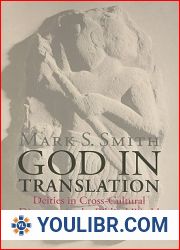
 49
49  2 TON
2 TON

